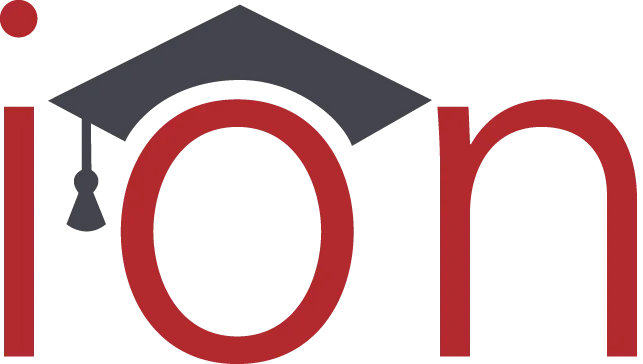Many college graduates seek ways to pay off their costly loans. Rather than making monthly payments by yourself, pursue jobs that help with student loans. Read to find out which career paths can help pay off your loans, and utilize the resources from IonTuition to get the best in repayment benefits!
Middle School Teacher
The government offers loan forgiveness for up to $17,500 for teachers, but they have to meet certain requirements. To qualify for this type of loan forgiveness, teach math or science for five straight years at a school designated as a low-income secondary (middle) school. The government defines a low-income school, also called a Title I school, as one where at least 30% of students come from lower income backgrounds, and qualify for a variety of services, such as free and reduced lunch.
Additionally, a teacher qualifies if they serve as a special education teacher at a low-income elementary or middle school, but they also need to teach for five years consecutively. This is no easy feat. Teaching is one of the most challenging jobs in the world, with some seriously high rates of burnout. The rewards from teaching itself, however, can also be matched in the form of a federal student loan repayment benefit.
Military Service
This is not quite the same as a student loan repayment, because serving in the military actually is a way to pay for college tuition. The Military’s Tuition Assistance Program “provides service members the opportunity to enroll in courses at accredited colleges, universities, junior colleges and vocational-technical schools,” according to Today’s Military. Serve in any branch of the military and you’ll qualify for college tuition — thus excluding the need for student loans in the first place.
Nurse
Nurses are in high demand as of late. Nurses provide some of the most important parts of healthcare in this country. Further, baby boomers are aging, requiring more people to work in healthcare. The average nurse graduates with $28,000 in student loan debt, and the work can be challenging. Accordingly, it’s no surprise that corporations and the government are funding nursing to motivate more people to join the field.
Nurses can enroll in the Federal Nursing Education Loan Repayment Program. This program pays off 60% of unpaid loans in two years. To qualify, nurses “must fulfill a service obligation at one of the thousands of eligible nonprofit hospitals, clinics, nursing schools and other facilities located in designated mental health or primary medical care Health Professional Shortage Areas across the U.S.,” as reported by Lendedu.
Additionally, The Federal Perkins loan Discharge and Cancellation program can offer up to 100 percent of federal student loan forgiveness. This applies to medical technicians as well. However, this is specific to students who had taken out a Perkins loan, which is a loan that’s available for students with “exceptional financial need.”
Nonprofit Work
Many nonprofits offer loan forgiveness as well. The nonprofit must meet several requirements, however, such as being considered tax-exempt by the IRS. It also can’t be a labor union or a political organization that’s partisan. Religious organizations are also ruled out from the loan forgiveness program.
Location-Specific Jobs
A number of jobs qualify for student loan forgiveness on a state-by-state basis, according to their needs. For example, you can become a dentist in Kansas, a primary healthcare provider in California, or a veterinarian in Minnesota. Each job offers student loan repayment benefits to varying degrees. In California, you can get up to $160,000 in loan forgiveness for that primary healthcare job!
Volunteer Work
The government recognizes the need for volunteers and the pivotal work they do. As a result, various loan repayment programs exist for volunteers. The AmeriCorps award is available for anyone who has completed their service, but needs to be something you sign up for before starting your program. The loan forgiveness is offered upon completion of your program.
In addition to AmeriCorps, Peace Corps volunteers qualify for student loan forgiveness. If someone was in the Peace Corps and holds a Perkins loan, 70% of their loans are forgiven.
Medical Professionals
Becoming a medical professional is not only a lot of work, it’s a lot of schooling. Student loans are often through the roof. Anyone licensed in primary care medical, dental, or mental and behavioral health professions may qualify for student loan repayment. Certain forgiveness programs are available for anyone working in areas of high needs, but those who qualify can get up to $60,000 for a two-year commitment to their site. Dentists, doctors, and other practitioners can all look into qualifying for this loan forgiveness program.
Speech Pathologist
Speech pathologists often qualify for a student loan repayment benefit. However, this is similar to other education-based loan forgiveness programs, in which the speech pathologist needs to be working full-time, at a Title I elementary or middle school, and it needs to have started during or after August of 2008.
Public Service Workers
Public service workers, including firefighters and police officers, may qualify for up to 100% of their student loans forgiven, under a number of circumstances. For starters, the public service worker must first make 120 qualifying payments, after 2007. This accounts for 10 years of monthly student loan payments. After making 120 payments, you may then qualify to get all of your remaining balance forgiven. Direct Stafford loans, Direct Parent and Grad PLUS loans, and Direct Consolidation loans are all eligible. It’s a lengthy process, but may shave off years of loan repayments.
Corporate or Other Jobs
More and more companies offer student loan repayment benefits for their employees. As a result, jobs not included on this list may still be eligible. It’s simply offered through a company instead of through the government. In fact, many businesses and brokers across the United States work with IonTuition, taking advantage of our IonMatch, IonPay, IonLearn, and IonManage toolkits to help provide student loan repayment benefits for their employees. We’ve recommended this before, but find out if your employer — present or future — has a student loan benefit for the company. If they don’t offer one, this could be a great chance to advocate for the growing economic needs of many members of the population.
Why Is This Offered?
Student loan repayment benefits continue to grow in popularity for a number of reasons. As we’ve discussed in previous blogs, the student loan debt crisis is very real. The debt is higher than credit card debt by over $600 billion. But to take it a step further, many jobs are very challenging (such as careers in the medical and educational fields), but very necessary. As a society, we need people to fill these roles, but need to provide further incentive for the work that they’re doing.
Not to mention, pursuing a degree can be a double-edged sword. A degree is necessary for many careers. However, it requires lots of money and time, and paying off the loans that were needed to acquire the degree can be a huge drawback. In fact, some people avoid going down certain career paths for the collegiate expenses alone.
IonTuition offers student loan repayment benefits so that any employer can provide assistance. With the right tools, debts may be significantly reduced. This improves both the individual’s finances, as well as the state of debt in the country as a whole. Contact IonTuition to see how our toolkits can help — we would be honored to show you how your business can profit from our student loan repayment benefits!

